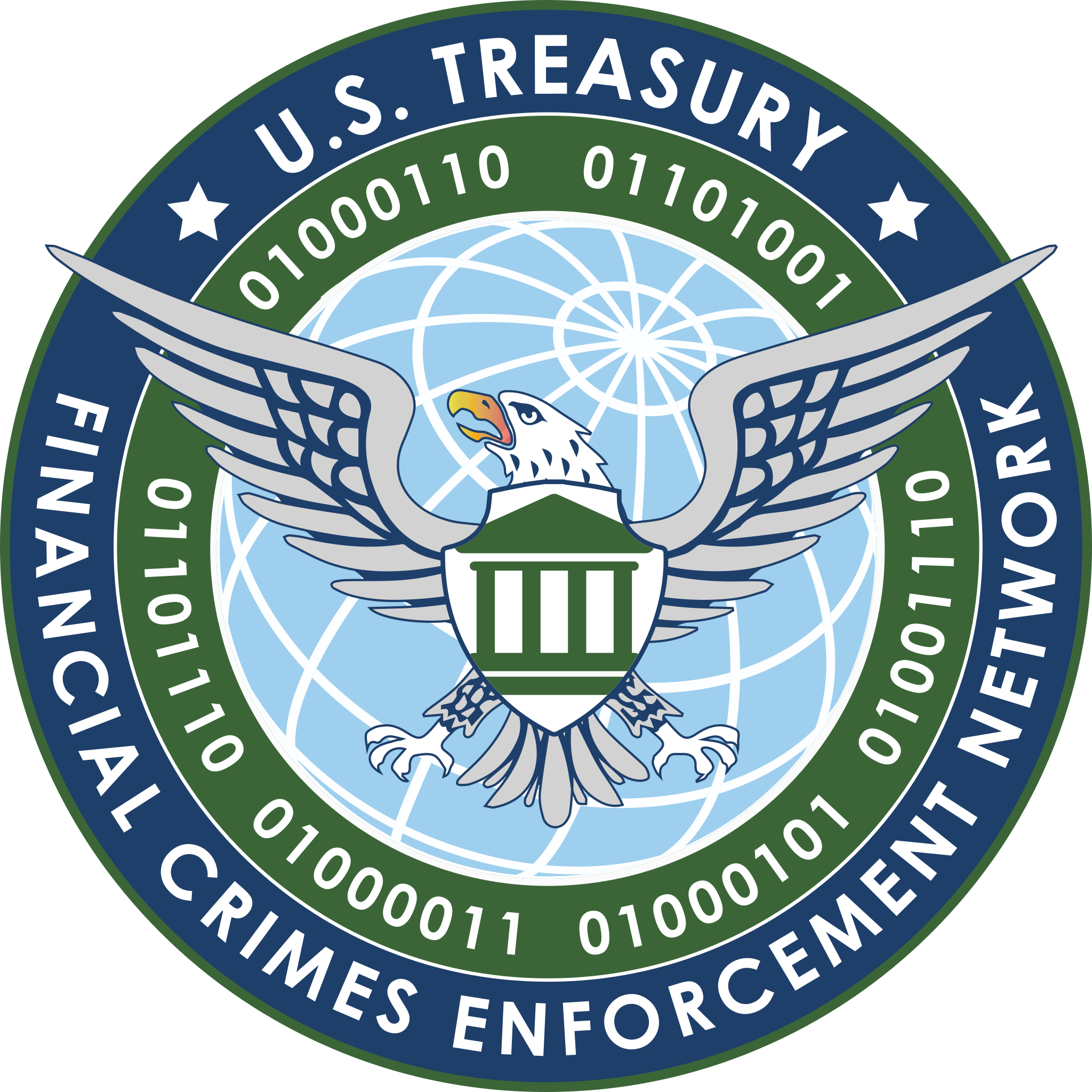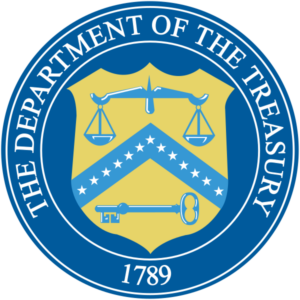Financial Crimes Enforcement Network (FinCEN)
“FinCEN and its counterparts around the globe must continue to cooperate and innovate together.” -Sigal Mandelker
 Written by Erling Andersen
Written by Erling Andersen
Definition
FinCEN is a bureau of the United States Department of the Treasury that is responsible for safeguarding the financial system against money laundering. Also terrorist financing, and other financial crimes. FinCEN is tasked with collecting, analyzing, and disseminating financial intelligence to law enforcement agencies and other relevant authorities.
Historical View About Financial Crimes Enforcement Network (FinCEN)
- FinCEN was established in 1990 under the Treasury Department in the wake of several major money laundering scandals. The primary objective was to create a financial intelligence unit to collect and analyze financial information to combat money laundering and terrorist financing. Also to face the illicit financing activities.
- The Bank Secrecy Act was amended in 2001 after terrorism attacks to expand FinCEN’s role and responsibilities. Financial institutions were required to report more Suspicious Activities and transactions to FinCEN to help detect potential terrorist financing networks.
- Over the years, FinCEN has played an important role in uncovering and investigating several major money laundering scandals.
- In 2012, FinCEN investigated HSBC for violations of money laundering and sanctions laws, resulting in a $1.9 billion! settlement.
- In 2017, FinCEN investigated Danske Bank for its role in one of the largest money laundering scandals! in history, involving suspicious payments totaling over $200 billion! from 2007 to 2015.
“Money laundering! has evolved into one of the world’s most serious threats. It undermines markets, distorts prices, endangers the integrity of financial systems, and weakens governments.” –Jack Lew, Treasury Secretary under Obama Administration
- FinCEN has also helped prosecute criminal organizations involved in money laundering, including drug cartels, fraud networks, and terrorist groups. FinCEN provides critical financial intelligence to law enforcement agencies to identify, track, and disrupt the financial operations of these criminal entities.
- As the threat of financial crime has evolved with new technologies, geopolitical changes, and globalization, FinCEN adapt its approach. This included utilizing more advanced data analytics, artificial intelligence, and partnerships with the private sector.
In summary, Over the past three decades FinCEN has grown from a small financial intelligence unit into a major player in the fight against financial crime. Through a combination of intelligence gathering, regulatory enforcement, and partnerships, FinCEN uncover and prosecute significant money laundering operations and illicit financial networks.
Examples of Financial Crimes Enforcement Network (FinCEN)
- Black Market Peso Exchange Case: In 2000, FinCEN uncovered an intricate network of businesses used to launder hundreds of millions of dollars from Colombian drug cartels via the Black Market Peso Exchange. The financial intelligence helped convict over 40 members of the drug money laundering scheme.
- Project Columba: In 2005, FinCEN launched Project Columba, an initiative to combat pharmaceutical diversion and distribution of counterfeit prescription drugs. FinCEN analyzed financial transactions and provided intelligence that led to over 300 arrests and seizure of millions worth of assets.
- Operation Cassandra: In 2007, FinCEN assisted Operation Cassandra, an effort to uncover the full extent of the money laundering activities of Hezbollah, a designated terrorist organization. FinCEN provided financial intelligence that helped law enforcement build cases against individuals laundering money to fund Hezbollah operations.
“It is absolutely critical for FinCEN and our law enforcement partners, regulatory authorities and financial institutions to work closely together. Financial intelligence is the lifeblood to identify, disrupt and dismantle illicit financial networks.” -James H. Freis Jr., Former FinCEN Director
- HSBC Money Laundering Investigation: In 2012, FinCEN investigated HSBC for failing to adequately monitor millions of dollars in transactions from Mexico and other locations linked to drug cartels. FinCEN found that HSBC violated numerous laws, and the bank ultimately paid $1.9 billion in fines.
- Operation Choke Point: In 2013, FinCEN coordinated Operation Choke Point, targeting banks and payment processors used by fraudsters, scammers, and illegal businesses. The operation led to the shutdown of many fraudulent shell companies and arrest of individuals involved.
- Danske Bank Money Laundering Scandal: In 2017, FinCEN investigated Danske Bank’s Estonian branch for involvement in one of the largest money laundering scandals on record. Danske Bank admitted that around $230 billion! in suspicious transactions flowed through the branch from 2007 to 2015.
These examples show how FinCEN leverages financial intelligence to uncover and prosecute significant cases of money laundering, fraud, and illicit financing. FinCEN works closely with law enforcement agencies to provide the information needed to build strong cases and dismantle criminal networks.
“The single greatest deterrent to money laundering is effective regulation, supervision and enforcement against financial institutions that do not maintain anti-money laundering programs or fail to implement them properly.” –Jennifer Shasky Calvery, Former FinCEN Director
Statistics about Financial Crimes Enforcement Network (FinCEN)
Here are the famous statistics from FinCEN’s 2020 Annual Report:
- FinCEN received over 2.2 million Suspicious Activity Reports (SARs) in 2020, a 9% increase from the previous year.
- SARs filed by banks accounted for over 86% of all SARs received by FinCEN in 2020.
- SARs helped identify and disrupt an estimated $8.9 billion in potential money laundering and financial crime in 2020.
- The number of SARs related to cybercrime and cyber-enabled crime continued to increase rapidly, growing by 53% from 2019 to 2020.
- Regulatory fines and penalties levied by FinCEN totaled over $204 million! in 2020, a 109% increase from 2019.
- FinCEN exchanged over 30,585 intelligence products with domestic and international partners. This represents a 25% increase from 2019.
- It’s Office of Intelligence and Analysis responded to over 136,600 research and analytical requests from law enforcement, regulatory, and intelligence agencies.
- FinCEN received over 47,000 reports of foreign bank and financial accounts from U.S. persons, as required under the Bank Secrecy Act.
- It conducted over 500 outreach events to financial institutions and money services businesses to promote compliance and combat financial crime risks.
These statistics show the scale of FinCEN’s operations and the growing scope of the financial crimes it is tasked with addressing. The increasing number of SARs filed indicate that money laundering and financial crime threats are expanding, though experts note that these crimes still remain severely underreported. FinCEN’s outreach, information sharing, fines, and regulatory actions all play important roles in its efforts to safeguard the financial system.
“The ingenuity of money launderers continues to evolve at a rapid pace and so too must the strategies employed to combat this scourge.” -Lawrence Beer, Former FinCEN Acting Director
Incidents about Financial Crimes Enforcement Network (FinCEN)
- In 2018, FinCEN fined UBS $15 million for failing to establish and implement an effective anti-money laundering program. UBS failed to adequately monitor and detect suspicious transactions.
- In 2019, FinCEN imposed a $35 million penalty on Capital One for violations of the Bank Secrecy Act. Regulators found Capital One failed to establish and implement an effective anti-money laundering program.
- In 2012, FinCEN fined HSBC $1.92 billion for violating multiple anti-money laundering and sanctions compliance laws. HSBC had continually failed to properly monitor millions of dollars in transactions tied to drug cartels and sanctioned entities.
- In 2017, FinCEN fined TD Bank $61.9 million for failing to implement an effective anti-money laundering program. The bank had failed to properly file thousands of suspicious activity reports and monitor high-risk accounts.
- In 2016, FinCEN levied a $18 million fine against two NYC-based money transmitters for willful violations of anti-money laundering laws. The companies had failed to implement appropriate compliance programs and file required reports.
These incidents show that despite the importance of anti-money laundering compliance, many financial institutions still fail to establish effective programs and procedures to detect and report suspicious activity. FinCEN’s enforcement actions and fines aim to punish noncompliance while incentivizing better practices going forward. The fines have increased substantially in recent years, indicating a more aggressive stance by regulators.
The incidents highlight how crucial FinCEN’s monitoring and enforcement functions are, especially as financial criminals become more sophisticated and able to exploit compliance weaknesses within financial institutions. Ongoing oversight and penalties act as a deterrent and help drive overall improvements in anti-money laundering frameworks.
“Financial intelligence is vital to the global fight against money laundering, terrorist financing, and other financial crimes. FinCEN and its counterparts around the globe must continue to cooperate and innovate together.” –Sigal Mandelker, Former Under Secretary of the Treasury for Terrorism and Financial Intelligence
The Future of about Financial Crimes Enforcement Network (FinCEN)
- Adopting new technologies: FinCEN is incorporating new tools like artificial intelligence, machine learning. Also advanced data analytics to detect suspicious activity and combat financial crime. These technologies can analyze large volumes of data and transactions in near real-time.
- Expanding public-private partnerships: FinCEN is forming more partnerships with financial institutions, technology companies. Also other private sector entities to collaborate on identifying threats, sharing information. Also developing solutions. These kinds of partnerships will be critical going forward.
- Focusing on emerging threats: FinCEN is devoting more resources to combating emerging threats like cybercrime, cryptocurrency money laundering, and darknet marketplaces. As financial criminals exploit new technologies, FinCEN must adapt its response.
- Improving information sharing: FinCEN is looking to improve how it shares financial intelligence and works with domestic and international partners like law enforcement agencies, regulatory bodies. Also foreign financial intelligence units. Timely information sharing is essential.
- Enhancing beneficial ownership transparency: FinCEN is working to improve transparency around beneficial ownership – the natural persons who ultimately own or control legal entities. This data can help expose money laundering schemes that hide behind shell companies.
- Strengthening regulatory framework: FinCEN will continue bolstering the Bank Secrecy Act and other anti-money laundering regulations based on evolving threats and lessons learned. Regulations must keep up with the increasingly global and technologically sophisticated nature of financial crimes.
- Increasing international cooperation: FinCEN will cooperate more closely with international partners to combat financial crimes that span multiple jurisdictions. Transnational criminal organizations require a coordinated global response.
In summary, by embracing technological innovation, expanding partnerships, focusing on emerging threats, improving information flow. Also strengthening regulations, FinCEN aims to evolve its approach for greater effectiveness in the future fight against financial crimes.
“Technology driven solutions like Kyros AML Data Suite! can help by both automating parts of the money laundering detection process and enabling financial institutions and regulators to spot patterns and risks that would otherwise go unseen.” – Kyros CEO
Explore the Power of Kyros AML Data Suite
It offers a range of benefits to financial institutions and other designated entities, including enhanced due diligence capabilities, the ability to generate suspicious transaction reports and other required documentation, and the ability to maintain central registers of beneficial ownership information for companies and other legal entities. With its advanced analytics and artificial intelligence, Kyros AML Data Suite! can help organizations to stay ahead of emerging threats and ensure compliance with AML regulations. To learn more about how Kyros AML Data Suite! can help your organization, visit kyrosaml.com.
Kyros AML Data Suite
Conclusion
FinCEN plays a critical role in safeguarding the financial system against money laundering, terrorist financing. Also other financial crimes. The bureau collects and analyzes financial intelligence to identify trends and patterns in criminal activity, and works closely with law enforcement agencies. Also other relevant authorities to combat financial crime. By utilizing powerful tools such as Kyros AML Data Suite! financial institutions and other designated entities can help to prevent criminal activity and protect the integrity of the financial system. As the threat of financial crime continues to evolve, it is essential that organizations remain vigilant and proactive in their efforts to combat ML and other financial crimes.
Share article on




